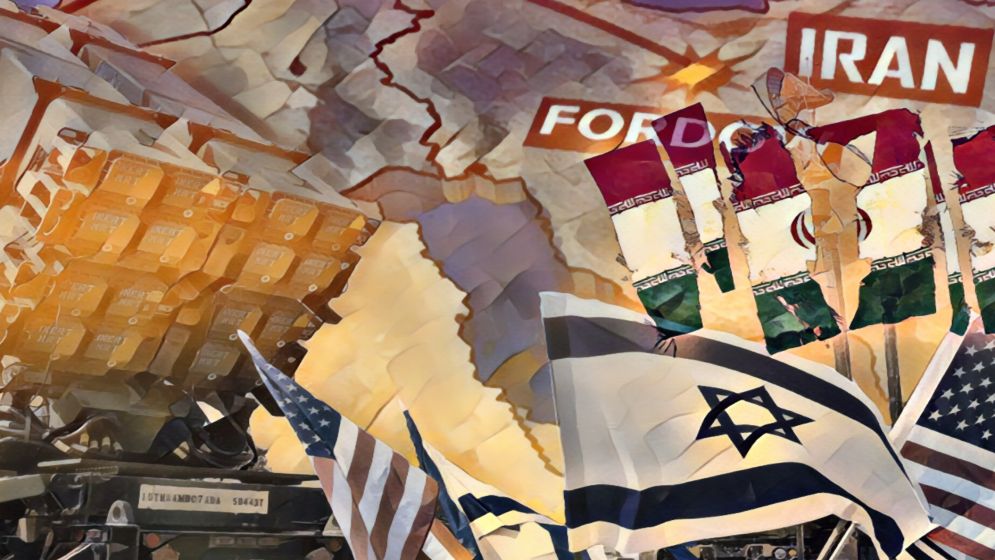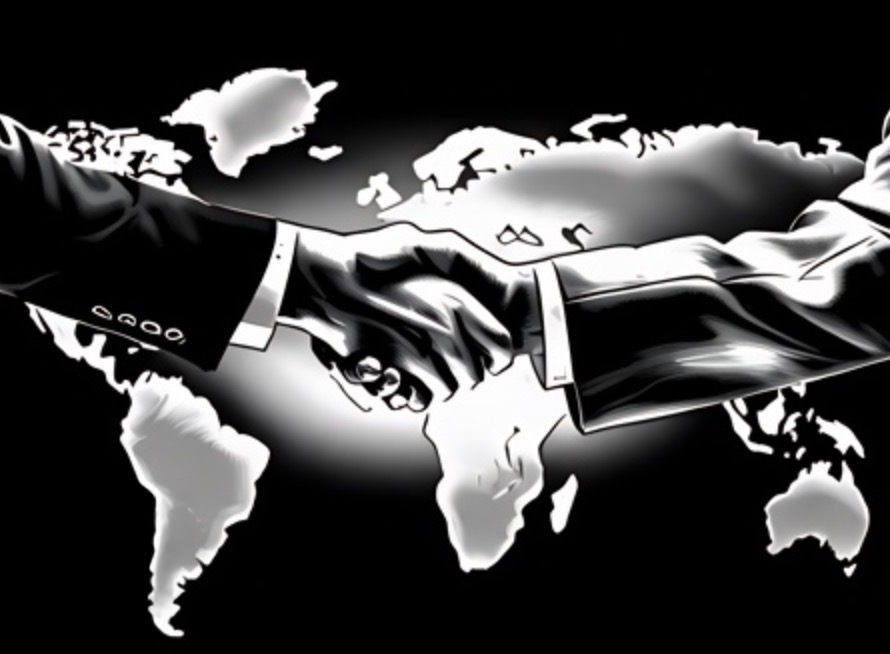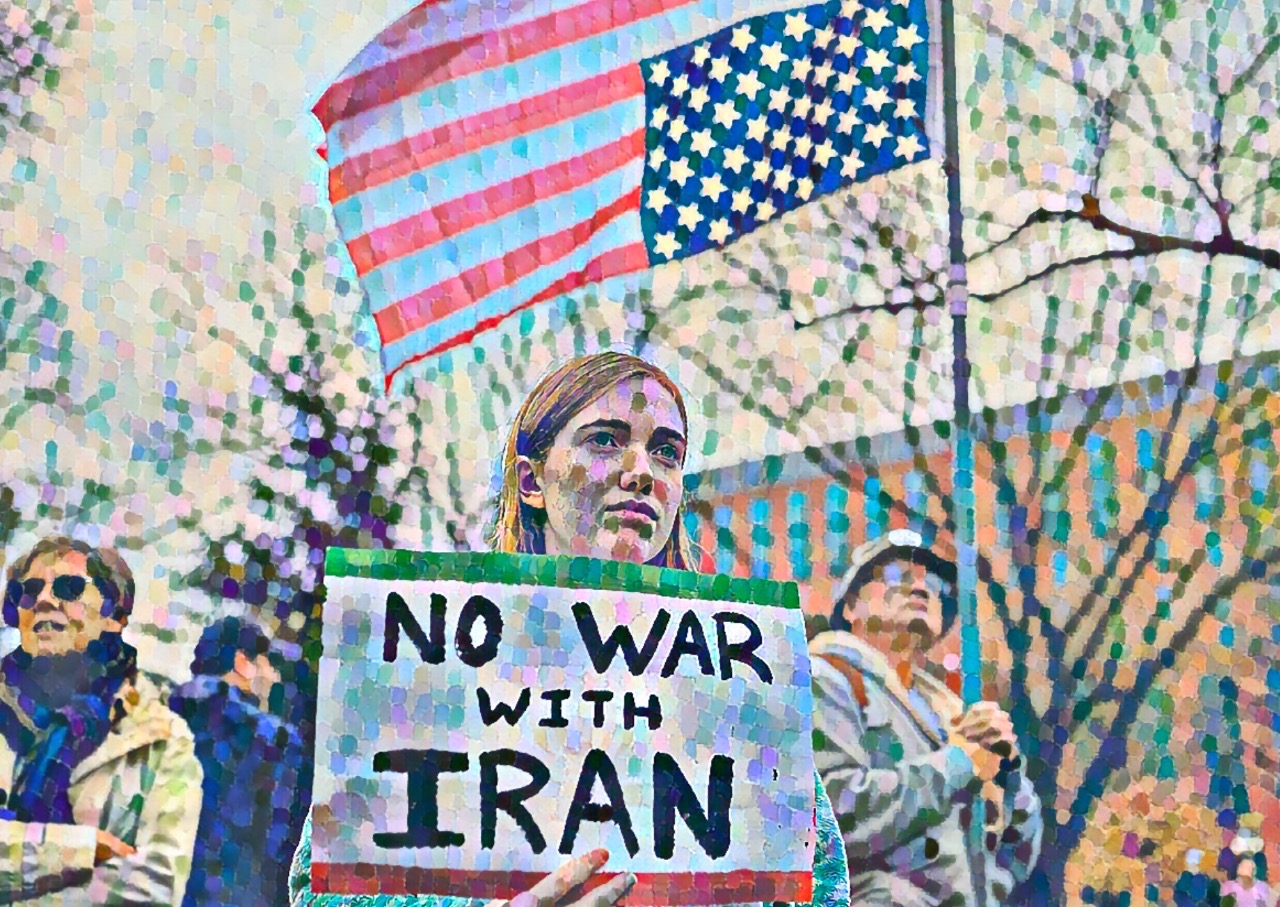What are the true options of Iran in a ‘war’ it can’t win or quit?

For many in Bangladesh and across the broader Muslim world, the sight of Iranian missiles streaking toward Israel in recent weeks has been met with a complex sense of vindication.
It is a grim irony, but after months of watching harrowing images emerge from Gaza–images of leveled neighborhoods, lifeless children, and mass funerals–Iran’s retaliation has come to symbolize a form of long-awaited justice.
Since the Israeli campaign in Gaza began, which Tel Aviv continues to frame as a war against Hamas, millions have grieved what they see as a slow-motion genocide.
Yet, for all the global outcry, tangible efforts to halt the bloodshed have been scarce. Into this void stepped Iran–militarily powerful, ideologically resolute, and seasoned by decades of Western sanctions.
But power alone does not chart a path out of war.
Israel's aggressive actions–striking Iranian military officials, targeting civilian infrastructure, and damaging the country’s air defenses–have drawn blood.
At least 240 Iranians have been killed since June 13, including prominent scientists and senior officers. The Israeli strikes have not spared state TV buildings, apartment complexes, or hospitals.
Iran has responded with its own firepower, launching volleys of ballistic missiles aimed at Israeli military sites. But as is inevitable in modern warfare, civilians have paid a price: Israel has reported 24 deaths, and the missiles have struck both military and civilian targets, including a hospital and a key oil refinery in Haifa.
The risk is now that both countries are locked into a cycle of escalation. Israel’s long-term objectives–crippling Iran’s nuclear program and potentially forcing regime change–suggest that this is not a war it intends to end soon.
Iran, for its part, has little room to maneuver. Its official stance rejects any negotiations while under attack, fearing that talks under fire would be tantamount to surrender.
So, a broader conflict actually looms.
The United States, under President Donald Trump, has shown both belligerence toward Iran and hesitation to plunge into another Middle Eastern quagmire.
Trump may ultimately be Iran’s best hope for de-escalation, if only because a full-scale war risks destabilizing the region and complicating his electoral prospects.
If Washington can pressure Israel to stand down–even temporarily–it could open the door to diplomacy. Tehran, despite its rhetoric, may well be open to a ceasefire or even a political resolution, provided it can do so without appearing to capitulate.
In theory, Iran could return to the negotiating table even as the bombs fall. But in practice, peace requires more than theory. It demands political courage, restraint–and a recognition by all parties that endless war offers only endless suffering.

Will the diplomatic breakthrough come?
Yet, it seems so far that any diplomatic breakthrough remains elusive.
A key sticking point is Iran’s nuclear program–long a source of both national pride and international suspicion. For Tehran, dismantling its nuclear infrastructure would be tantamount to disarming in the face of existential threats.
It would also remove a critical bargaining chip, effectively leaving the country defenseless against efforts at regime change.
It’s hard to imagine Iran giving up the one piece of leverage that allows it to engage meaningfully with the West. Abandoning the nuclear program outright would unlikely to happen under current conditions.
Before Israel’s latest offensive, the U.S. and Iran had already conducted five rounds of negotiations. Those talks hit a wall when then-President Trump demanded that Iran completely abandon its nuclear ambitions–a demand at odds with Iran’s rights under the Treaty on the Non-Proliferation of Nuclear Weapons, to which it is a signatory.
That treaty guarantees all nations the inalienable right to pursue peaceful nuclear technology, a legal and political point Tehran continues to emphasize.
Trump has since hardened his stance, warning that failure to accept a deal could bring even graver consequences–statements widely interpreted as thinly veiled threats of regime change.
But if Trump is betting on Tehran’s capitulation, he may have miscalculated. Iranian officials, while aware that continued retaliation carries escalating costs, also fear that restraint will only invite more aggressive Israeli strikes.
This cycle leaves Iran trapped: to not respond is to appear weak; to respond is to justify further escalation. And yet, the country’s retaliatory options are narrowing.
Its most reliable deterrent–Hezbollah in Lebanon–has been significantly weakened following its own devastating war with Israel last year. In Syria, Iran lost another strategic ally with the ouster of Bashar al-Assad in late 2024, a development that further eroded Tehran’s influence in the region.
Still, Iran maintains tools to pressure U.S. interests in the region. Iranian-backed militias in Iraq remain active and capable, and experts warn they could be used to launch calibrated “warning shots” at American bases or personnel.
Barbara Slavin, a senior fellow at the Stimson Center, notes that these groups could exploit divisions within the U.S. electorate, particularly among isolationist conservatives.
“Trump’s base is still deeply opposed to foreign entanglements,” she recently told Al Jazeera. “They see wars in the Middle East as distant, expensive, and irrelevant to their daily lives. That gives Iran some room to maneuver, at least rhetorically.”

What’s the chance of US intervention
Anti-interventionist sentiment in the United States meanwhile is already potent–and likely to deepen if American troops are drawn directly into the conflict.
For a war-weary public, the prospect of U.S. casualties in a confrontation sparked by Israeli actions would quickly turn political fatigue into outright backlash.
“The thought of Americans dying in this would make it even more controversial for [the U.S.] than it already is,” Slavin, a longtime analyst of Iranian affairs, told Al Jazeera.
Beyond the battlefield, Iran has other ways to remind the world–and particularly the West–of its reach. Tehran has threatened to disrupt shipping in the Strait of Hormuz, a vital artery through which a significant share of the world’s oil supply flows.
Any attack there would send shockwaves through global markets, likely spiking energy prices and drawing attention in Washington.
But such a move would be a double-edged sword. Iran, too, depends heavily on that narrow channel to export its own oil, and targeting commercial vessels could strangle the very economy it needs to withstand a protracted conflict.
Iran’s leadership understands the stakes and may be reluctant to pursue such high-risk escalation.
So, Iran’s best option is to try to contain the war with Israel and wait it out. Going after U.S. forces–even symbolically–is a dangerous gambit.
The Trump administration, populated with outspoken hawks, has drawn a hard line: any attack on U.S. personnel or assets could trigger a direct military response. Tehran, for all its defiance, appears acutely aware of this red line.
Iranian leaders know that inviting a full-scale U.S. intervention would be catastrophic–not just militarily, but existentially. It could undo decades of strategic investment and hard-won regional influence.
So, Iran’s stated objective remains clear: to impose meaningful political, military, and economic costs on Israel in response to what it sees as an unprovoked war.
That stance was echoed by Hassan Ahmadian, a professor at Tehran University, who believes Tehran’s strategy is aimed at forcing Israeli society to confront the domestic consequences of Prime Minister Benjamin Netanyahu’s aggressive policies.
“Iranians are quite confident that they can inflict enough retaliatory pain to make Israel stop its attacks,” Ahmadian recently told the media.
Whether that confidence is warranted is harder to verify. Israel has tightly restricted media reporting on military damage, leaving the true scale of Iranian retaliation uncertain.
Likewise, Iran’s own capacity to wage a sustained military campaign remains unclear, particularly given the economic and strategic pressures it faces at home and abroad.
Still, Israel is not without its own vulnerabilities. Reports suggest it is beginning to run low on defensive missile interceptors, a critical component of its Iron Dome system.
Without steady resupply–much of which depends on U.S. support–Israel could become more exposed to long-range attacks in the coming weeks.
In the face of these mounting risks, both nations may find themselves inching toward the same conclusion: that neither side can afford an extended war.
For Iran, this means enduring the storm while avoiding a misstep that could provoke Washington. There will be no cavalry coming to its rescue.
For now, Iran is hunkering down–absorbing the blows, retaliating carefully, and gambling that time and pressure will force an end to the fighting.
It is a lonely position, but perhaps the only one left.
—
Md Sazzad Amin is Bangla Outlook’s Chief Geopolitical Columnist

